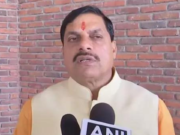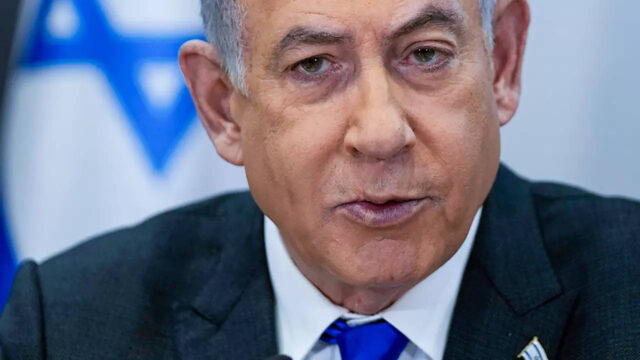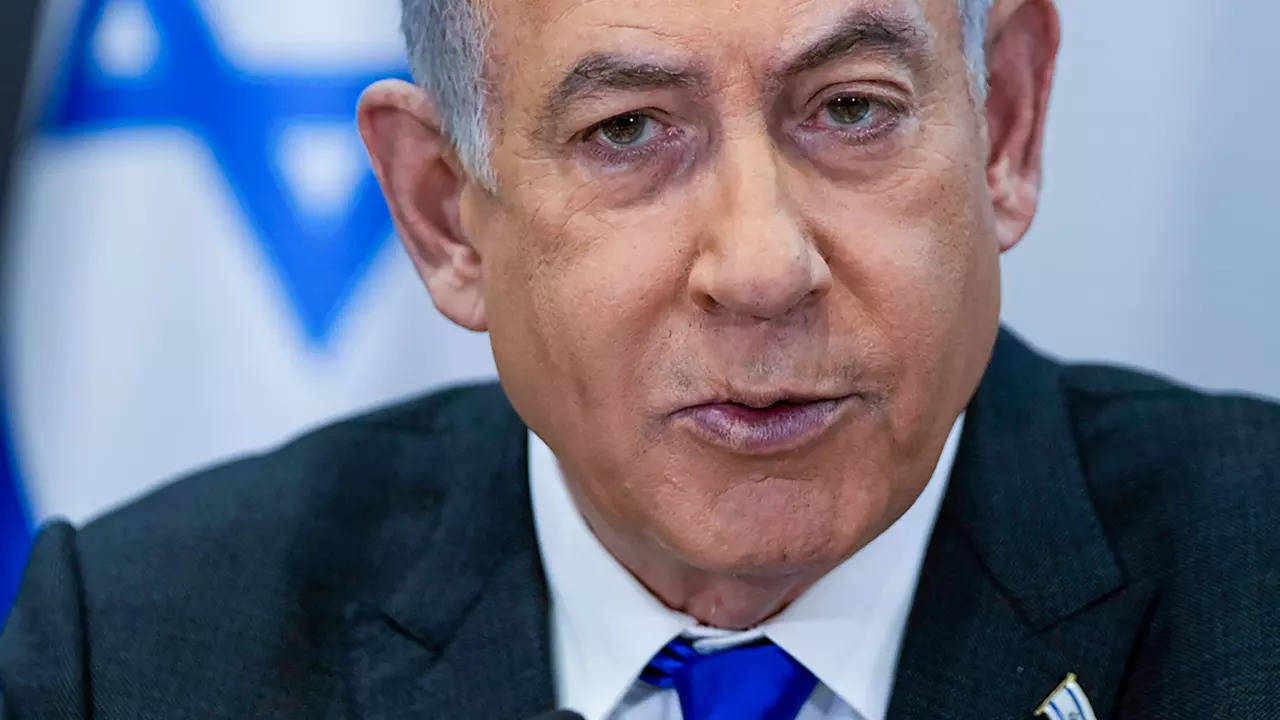
The International Criminal Court could soon issue an arrest warrant for Israeli Prime Minister Benjamin Netanyahu along with his defense minister and three Hamas leaders. If it does, what are the potential consequences?The government in Tel Aviv has cast a cautious eye toward The Hague, Netherlands, home of the International Criminal Court (ICC).
The court’s chief prosecutor, Karim Khan, has requested arrest warrants for Prime Minister Benjamin Netanyahu and Defense Minister Yoav Gallant.They are accused of war crimes and crimes against humanity in the Gaza Strip.
Khan also requested arrest warrants for three Hamas leaders Yahya Sinwar, Mohammed Deif and Ismael Haniyeh — on similar charges related to the Islamist militant group’s October 7 attacks on Israel.
What type of criminal case could the ICC bring against Netanyahu? The International Criminal Court only investigates individuals and only becomes active when a person is suspected of being responsible for one of four core crimes: genocide, war crimes, crimes against humanity, or starting a war of aggression.
The ICC has in fact been looking into possible war crimes committed by Israel since 2021. At the same time, the court has also been investigating similar accusations leveled against Hamas fighters. Moreover, investigations are currently ongoing in regard to acts of violence committed by Israeli settlers in the West Bank. Recent developments in the war between Israel and Hamas are all being considered in that context.
This most recent conflict began when militant Islamist Hamas fighters attacked southern Israel on October 7, 2023, killing some 1,200 people and abducting more than 240 back to Gaza. Hamas is considered a terrorist organization by numerous Western nations, including many EU member states as well as the US.
According to the Hamas-controlled Gaza Health Ministry, Israel’s military response to the attack has killed more than 34,000 people, though these numbers cannot be independently verified. When does the ICC have jurisdiction over Israeli citizens?
As a rule, the ICC may only take action when states cannot or will not pursue charges for the above-mentioned crimes at the national level. The current war makes it even more unlikely than usual that Israeli courts would initiate criminal proceedings against the head of its government, its ministers or army leadership. Furthermore, either a perpetrator’s home country must also acknowledge the court. Israel does not or the country in which a crime is alleged to have taken place must.
That could well be the case here, as the Palestinian territories are signatories to the Rome Statute of the International Criminal Court. Joining Israel in their rejection of the ICC are the US, China, Russia, India, almost all Arab states, and Iran.
When none of the nations tied to the crimes are ICC Treaty signatories, then the task of contracting the ICC to investigate falls to the United Nations Security Council as was the case, for instance, with Libya and Sudan. What consequences could the ICC warrant have for Netanyahu?
An arrest warrant is not a conviction. In the first instance it is a sign that the ICC takes accusations leveled against an individual seriously enough to investigate them.
According to the ICC website, judges will issue a warrant of arrest if it appears necessary to ensure that the person will actually appear at trial, that he or she will not obstruct or endanger the investigation or the court’s proceedings, or to prevent the person from continuing to commit crimes. However, as the ICC has no police force to arrest individuals against whom it has issued warrants, it is highly unlikely that members of the Israeli government will ever appear before judges in The Hague.
Still, an arrest warrant would greatly limit the freedom of movement that Netanyahu and his associates enjoy, for each of the ICC treaty’s 124 signatories are obliged to arrest individuals with outstanding warrants and to hand them over to the court.
That is why Russian President Vladimir Putin has been forced to avoid traveling to most international meetings since the ICC issued a warrant for his arrest over accusations that he is involved in the systematic abduction of Ukrainian children. Putin only travels directly to and from nations that do not recognize the legitimacy of the ICC. How would such an arrest warrant be tied to accusations of genocide leveled at Israel?
The ICC’s investigation should not be confused with another similar case pending against the state of Israel, namely the charge of genocide leveled against it by several nations. Among others, South Africa has spearheaded a case before the International Court of Justice (ICJ) based on the high number of casualties in Gaza.
The ICJ is also based in The Hague, but does not investigate individuals nor does it issue arrest warrants, instead dealing exclusively with legal disputes between states. In late January, the ICJ said it recognized the “risk of genocide in the Gaza Strip.
Still, the ICJ refused to back an emergency motion filed by South Africa demanding Israel immediately cease all military operations in the enclave. As a result of that stance, the genocide case against Israel could potentially drag on for months or even years.
The court’s chief prosecutor, Karim Khan, has requested arrest warrants for Prime Minister Benjamin Netanyahu and Defense Minister Yoav Gallant.They are accused of war crimes and crimes against humanity in the Gaza Strip.
Khan also requested arrest warrants for three Hamas leaders Yahya Sinwar, Mohammed Deif and Ismael Haniyeh — on similar charges related to the Islamist militant group’s October 7 attacks on Israel.
What type of criminal case could the ICC bring against Netanyahu? The International Criminal Court only investigates individuals and only becomes active when a person is suspected of being responsible for one of four core crimes: genocide, war crimes, crimes against humanity, or starting a war of aggression.
The ICC has in fact been looking into possible war crimes committed by Israel since 2021. At the same time, the court has also been investigating similar accusations leveled against Hamas fighters. Moreover, investigations are currently ongoing in regard to acts of violence committed by Israeli settlers in the West Bank. Recent developments in the war between Israel and Hamas are all being considered in that context.
This most recent conflict began when militant Islamist Hamas fighters attacked southern Israel on October 7, 2023, killing some 1,200 people and abducting more than 240 back to Gaza. Hamas is considered a terrorist organization by numerous Western nations, including many EU member states as well as the US.
According to the Hamas-controlled Gaza Health Ministry, Israel’s military response to the attack has killed more than 34,000 people, though these numbers cannot be independently verified. When does the ICC have jurisdiction over Israeli citizens?
As a rule, the ICC may only take action when states cannot or will not pursue charges for the above-mentioned crimes at the national level. The current war makes it even more unlikely than usual that Israeli courts would initiate criminal proceedings against the head of its government, its ministers or army leadership. Furthermore, either a perpetrator’s home country must also acknowledge the court. Israel does not or the country in which a crime is alleged to have taken place must.
That could well be the case here, as the Palestinian territories are signatories to the Rome Statute of the International Criminal Court. Joining Israel in their rejection of the ICC are the US, China, Russia, India, almost all Arab states, and Iran.
When none of the nations tied to the crimes are ICC Treaty signatories, then the task of contracting the ICC to investigate falls to the United Nations Security Council as was the case, for instance, with Libya and Sudan. What consequences could the ICC warrant have for Netanyahu?
An arrest warrant is not a conviction. In the first instance it is a sign that the ICC takes accusations leveled against an individual seriously enough to investigate them.
According to the ICC website, judges will issue a warrant of arrest if it appears necessary to ensure that the person will actually appear at trial, that he or she will not obstruct or endanger the investigation or the court’s proceedings, or to prevent the person from continuing to commit crimes. However, as the ICC has no police force to arrest individuals against whom it has issued warrants, it is highly unlikely that members of the Israeli government will ever appear before judges in The Hague.
Still, an arrest warrant would greatly limit the freedom of movement that Netanyahu and his associates enjoy, for each of the ICC treaty’s 124 signatories are obliged to arrest individuals with outstanding warrants and to hand them over to the court.
That is why Russian President Vladimir Putin has been forced to avoid traveling to most international meetings since the ICC issued a warrant for his arrest over accusations that he is involved in the systematic abduction of Ukrainian children. Putin only travels directly to and from nations that do not recognize the legitimacy of the ICC. How would such an arrest warrant be tied to accusations of genocide leveled at Israel?
The ICC’s investigation should not be confused with another similar case pending against the state of Israel, namely the charge of genocide leveled against it by several nations. Among others, South Africa has spearheaded a case before the International Court of Justice (ICJ) based on the high number of casualties in Gaza.
The ICJ is also based in The Hague, but does not investigate individuals nor does it issue arrest warrants, instead dealing exclusively with legal disputes between states. In late January, the ICJ said it recognized the “risk of genocide in the Gaza Strip.
Still, the ICJ refused to back an emergency motion filed by South Africa demanding Israel immediately cease all military operations in the enclave. As a result of that stance, the genocide case against Israel could potentially drag on for months or even years.








































